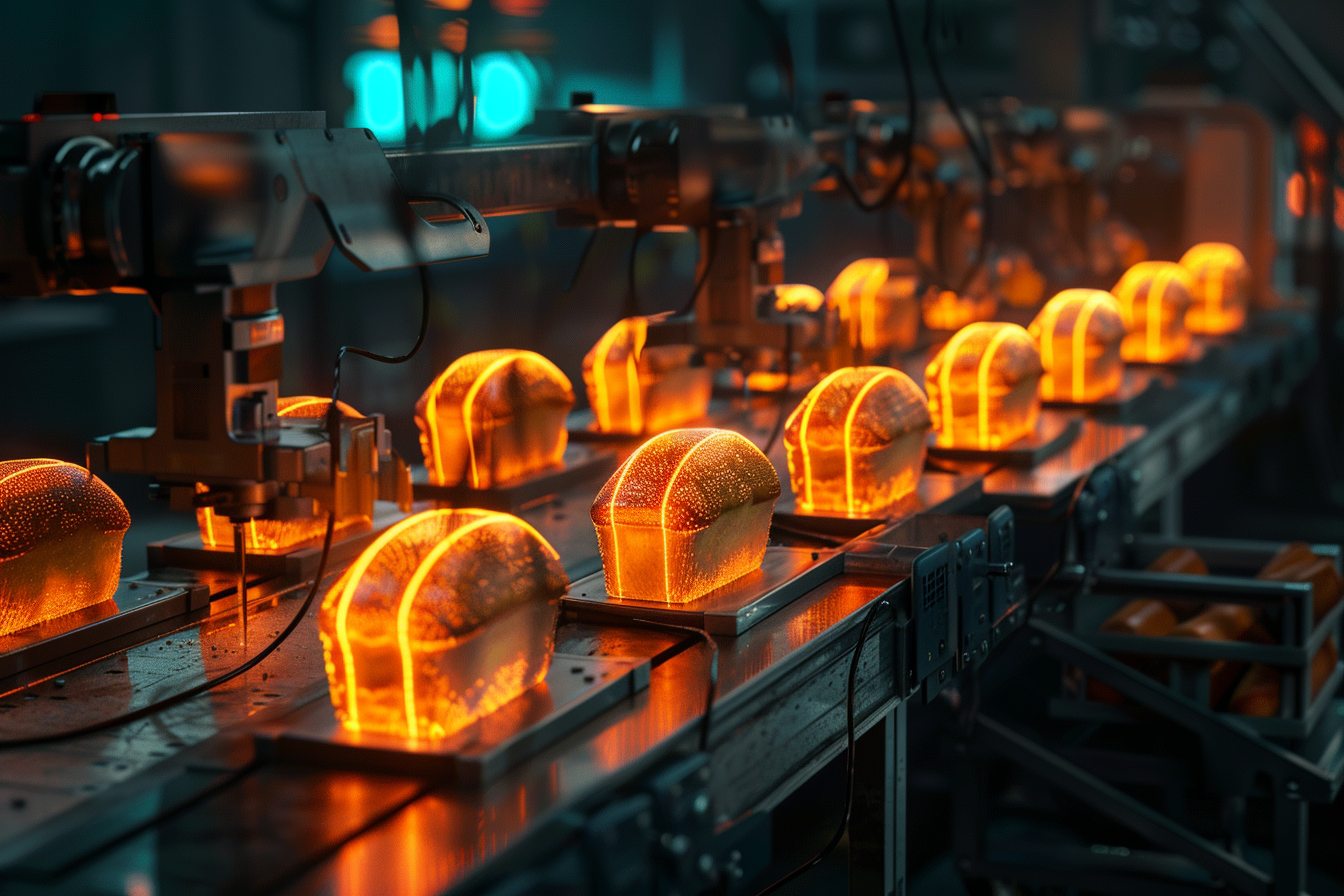
In the agri-food industry, competition can be fierce, and the challenges numerous. To face this competition and ensure the survival and prosperity of your business, it is essential to stand out. In this article, explore how artificial intelligence (AI) can help you distinguish yourself in the agri-food sector.
1. Reduce Losses with AI
One of the major challenges in the agri-food industry is loss management. AI can play a particularly useful role by analyzing production data, predicting demand trends, and optimizing storage processes. For example, AI systems can detect products close to their expiration date and propose sales or distribution strategies to avoid losses.
2. Facilitate Quality Assurance with AI
AI can revolutionize quality assurance in the agri-food industry by automating inspection and control processes. AI systems can detect anomalies in products, monitor production conditions, and ensure compliance with quality standards. This not only reduces the risk of product recalls but also improves customer satisfaction with better-quality products.
For example, computer vision can be used to visually inspect each product on the production line. This technology is capable of automatically signaling any issues related to aesthetics, size, color, contaminants, etc. Computer vision can operate continuously without breaks, allowing for instant detection of defects. It can also keep up with the fastest production lines, which the human eye cannot always do with the same precision.
3. Optimize Planning with AI
Effective planning is essential in the agri-food industry to meet demand while minimizing costs. AI can analyze historical data, market trends, and demand forecasts to optimize purchasing, production, and distribution planning. This prevents surplus or shortages, while reducing storage and transportation costs.
4. Detect Problem Sources Faster
AI also offers the possibility to detect problem sources more quickly. By analyzing real-time data from various sources such as production sensors, machines, equipment, and control systems, AI systems can proactively identify anomalies and deviations from standards.
Using decision tree models based on historical and real-time data, you can identify factors contributing to issues such as product quality variations or machine failures. These models can take into account a multitude of variables, such as production parameters, environmental conditions, characteristics of raw materials, etc.
5. Optimize Production with AI
In the agri-food industry (and in several other industries), AI can optimize production processes by identifying bottlenecks, improving machine efficiency, and predicting raw material needs. AI algorithms can adjust production parameters in real-time to maximize productivity while maintaining product quality. This increases yield and reduces production costs.
6. Optimize Warehousing with AI
Effective warehousing management is essential to ensure product quality and minimize costs. Artificial intelligence can play a crucial role in optimizing warehousing processes. AI systems can analyze stock data, predict demand, optimize storage space allocation, and minimize losses due to inappropriate conditions.
For example, AI can recommend ideal storage locations based on product characteristics and expiration dates, which helps avoid losses and maximize the use of available space.
7. Optimize Delivery with AI
Efficient delivery of agri-food products is a major challenge for many companies in the sector. AI can help optimize delivery processes by analyzing logistical data, forecasting transport needs, optimizing delivery routes, and minimizing delays.
AI algorithms can take into account various factors such as product availability, weather conditions, and road traffic to plan efficient and timely deliveries. This reduces logistic costs, improves customer satisfaction, and enhances the company’s competitiveness in the market.
Towards New Heights in Agri-Food with AI!
Artificial intelligence offers immense potential to transform the agri-food industry. However, it is crucial to take the time to assess your situation and specific needs before investing in AI solutions. By finding the right combination of AI technologies and integrating them effectively into your processes, you can truly stand out in the agri-food industry and ensure your company’s long-term success.